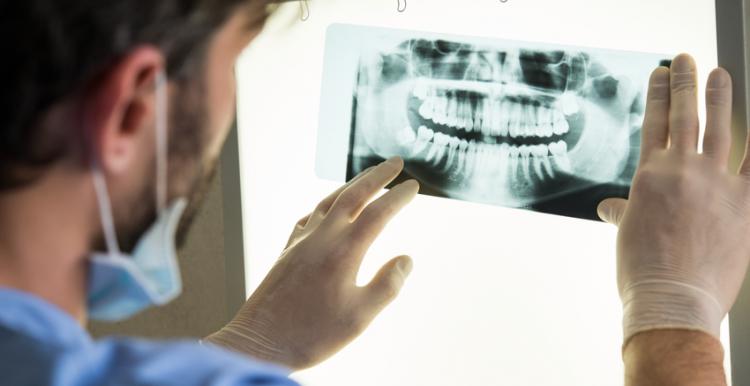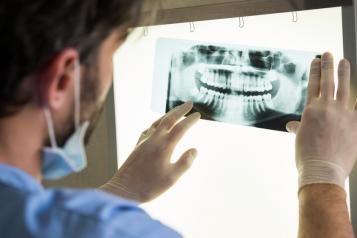NHS Dentist Complaints

What might you want to complain about?
NHS dentists have to follow certain standards and rules and if they don't, you can make a complaint. Here is a list of some things that could go wrong but remember if a problem comes up that isn't on this list, you still may be able to complain. Examples include:
- poor care
- cross-infection issues, for example, using dirty equipment
- the dentist is under the influence of drink or drugs
- mistakes in prescribing drugs, for example, prescribing antibiotics without checking whether you're allergic to them
- you're charged more for the treatment than you expected
- the dentist fails to give you a treatment plan
- the dentist doesn’t get valid consent from you before treatment
- bad communication, for example, your dentist doesn’t explain why a certain course of treatment is necessary or how much the treatment will cost
- poor record-keeping
- discrimination, for example, a dentist refuses to treat you just because of your race
You can’t find an NHS dentist who is accepting new patients
NHS England buys or commissions dental services to meet the needs of the local population, for both urgent and routine dental care. There may be a high demand for NHS dentists in some areas, and you may have to join a waiting list. You can do this by getting in touch with NHS England. You’ll be contacted as soon as an appointment is available but if this isn’t within a reasonable time, you should complain to NHS England, rather than to an individual dentist who refuses to take you on.
Private dental services offered by NHS dentists
When you see a dentist as an NHS patient, the dentist agrees to provide, on the NHS, any treatment that you need to keep your mouth, teeth and gums healthy and free from pain.
Some treatment isn't available on the NHS, such as white fillings in back teeth or dental implants (unless you have an exceptional clinical need for these). You have to pay privately for these treatments. The dentist is allowed to offer to do part of your treatment on the NHS and part of your treatment privately, which you must pay more for. However, the dentist must make it clear to you which treatment can be provided on the NHS and which treatment can only be provided privately.
Your dentist must not press you into having treatment privately if it's available on the NHS, and they should explain all of your options and the costs to you before they start your treatment. If you've been getting NHS treatment, you should be given a form (FP17DC) to sign to agree to begin private treatment.
You can make a complaint if your dentist doesn't keep to these rules - see below.
Concerns about advertising
The Advertising Standards Authority (ASA) can look into complaints about misleading, harmful or offensive advertisements by dentists. The ASA can change or remove a problematic advertisement.
The contact details of the ASA are:
Advertising Standards Authority Limited
Mid City Place
71 High Holborn
London
WC1V 6QT
Tel: 020 7492 2222
Website: www.asa.org.uk
If the clinic is unclean or unsafe
The Health and Safety Executive (HSE) provides information about risks in health care that can affect employees and anyone using these services. The HSE can visit any workplace at any time to carry out a health and safety inspection.
They can investigate following a report of an injury or suspected unsafe working practice which may breach health and safety legislation.
You can find the contact details of your local HSE office on their website at www.hse.gov.uk.
If the clinic is unclean or unsafe, you could also make a complaint to NHS England who buys or commissions the service - see below.
Who is responsible for NHS dental services?
NHS dentists are commissioned by NHS England and have a contract with NHS England to provide services. Other staff at a dental surgery are usually employed by the dentist who has the responsibility for making sure they carry out their duties properly.
Making a complaint about dental services
Depending on what you want to achieve, you may have different options to make a complaint about dental services, for example:
- use the NHS complaints procedure
- report concerns to NHS England, or your local Healthwatch
- report concerns to the Care Quality Commission - see below
- take legal action
- report a dentist to their regulatory body - see below
Using the NHS complaints procedure
If your dentist isn't providing appropriate treatment on the NHS, you can use the NHS complaints procedure because the dentist is in breach of their NHS contract. The solution to the problem could be that the dentist is told to provide appropriate NHS treatment.
You can't use the NHS complaints procedure to complain about private treatment carried out by an NHS dentist. You should send these complaints to the Dental Complaints Service run by the General Dental Council -see below.
If an NHS dentist is pressing a patient into having private care which is available on the NHS, this could be a breach of the ethical standards that dentists must follow. If this happens, you can contact the General Dental Council - see below.
NHS England, PO Box 16738, Redditch, B97 9PT
england.contactus@nhs.net. Put ‘For the attention of the complaints manager’ in the subject line.
Phone: 0300 311 22 33
Further details about complaining to NHS England
You might want to consider registering with a new dentist. You can find out about other practices from the NHS Choices website or contact NHS England at the contact details above if you need more help with that.
Other advice from NHS Choices:
Reporting concerns to the Care Quality Commission
Dentists have to register with the Care Quality Commission (CQC) and the CQC carry out regular inspections of dental services. You can read their inspection reports on their website at www.cqc.org.uk. You can report concerns about a dental service to the CQC, for example, if you think a dental surgery isn’t keeping to the standards about cleanliness and cross-infection. But the CQC can’t usually investigate individual complaints.
Reporting concerns to the regulatory body
All dentists have to register with the General Dental Council (GDC) which is their regulatory body. The standards of the GDC apply to:
- dentists
- dental nurses
- dental hygienists
- dental technicians
If a dental professional doesn’t meet these standards, they may be removed from the register and won’t be able to work as a dental professional. You can contact the GDC if you have a concern about the fitness to practice of an NHS dentist. An example is if an NHS dentist is pressuring you to have private treatment that is available on the NHS. The GDC website is www.gdc-uk.org/patients/raising-a-concern
If you had private dental treatment
If you have already made a formal approach to the practice, and the problem has not been resolved, you can contact the Dental Complaints Service (DCS). The DCS provides a free and impartial service to help private dental patients and dental professionals to settle complaints about private dental care fairly and efficiently.
The DCS can deal with your complaint if you would like an apology, a refund or a contribution to the cost of further treatment. They cannot deal with claims for compensation, or with complaints about dental plans.
If your private treatment was through a dental plan, you should contact your plan provider as they will have a complaints process.
Dental records
If you're thinking of making a complaint about your dental treatment, you may find it helpful to get a copy of your dental records first.
Get help
Depending on the circumstances, it can be difficult or distressing to make a complaint. It's usually best to get help to do this. For example, you can contact us for advice or VoiceAbility for complaints advocacy support.
Next steps
-
NHS and adult social care services complaints - deciding what outcomes you want to achieve
-
Checklist to help you decide whether you should make a complaint about adult social care services
-
Complaining to a clinical commissioning group about services they commissioned
-
Complaining to NHS England about procedures, or services they commissioned
-
Problems with NHS and adult social care - complaining to the Care Quality Commission
-
Organisations that can help you make a complaint about health services
Other useful information
-
NHS patients' rights (includes information about access to medical records)

